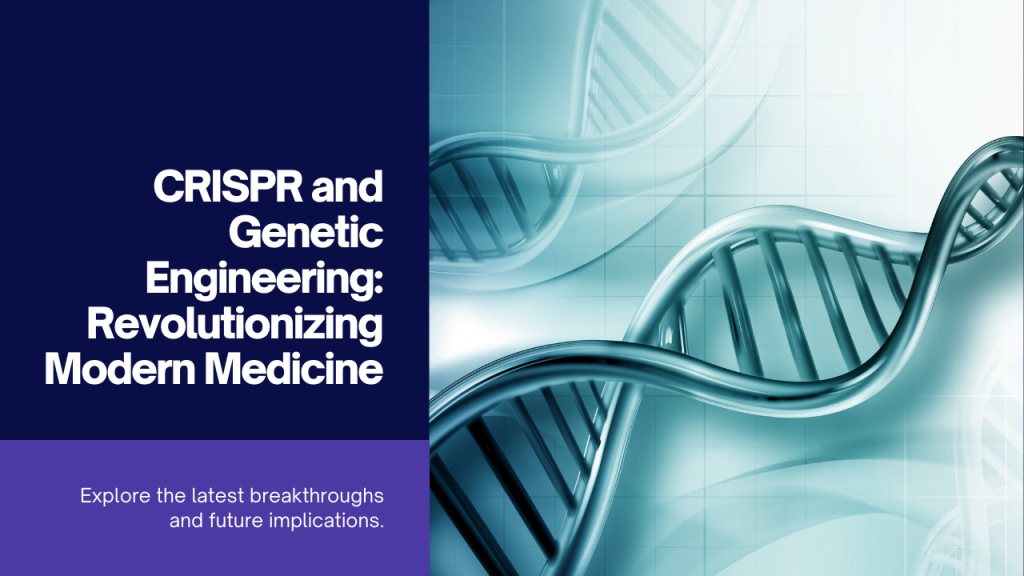CRISPR and genetic engineering have emerged as pioneering tools in modern healthcare, offering revolutionary solutions to a wide range of genetic disorders, diseases, and medical challenges. CRISPR, or Clustered Regularly Interspaced Short Palindromic Repeats, is a powerful gene-editing technology that allows scientists to precisely modify DNA sequences with unprecedented accuracy and efficiency.
One of the most promising applications of CRISPR technology is in the treatment of genetic diseases. By targeting and correcting specific genetic mutations responsible for conditions such as sickle cell anemia, cystic fibrosis, and muscular dystrophy, CRISPR offers the potential to transform the lives of millions of patients worldwide, providing hope for effective treatments and even cures.
Moreover, CRISPR-based therapies hold promise for combating infectious diseases by targeting pathogens such as viruses and bacteria. Researchers are exploring CRISPR’s potential to develop novel antiviral treatments, enhance vaccine efficacy, and engineer probiotics capable of fighting off harmful pathogens in the gut.
Furthermore, CRISPR technology is driving advancements in personalized medicine, enabling tailored treatments based on an individual’s unique genetic makeup. By identifying genetic markers associated with disease risk and drug response, CRISPR facilitates precision medicine approaches that optimize treatment outcomes and minimize adverse effects.
However, the widespread adoption of CRISPR and genetic engineering also raises ethical and societal concerns, including issues related to genetic privacy, equity of access, and unintended consequences of genome editing. Addressing these challenges requires thoughtful regulation, transparent governance frameworks, and ongoing dialogue between scientists, policymakers, and the public.
In conclusion, CRISPR and genetic engineering represent groundbreaking advances in modern healthcare, offering unprecedented opportunities to address genetic diseases, combat infectious pathogens, and personalize medical treatments. By harnessing the power of these transformative technologies responsibly, we can unlock new frontiers in healthcare and improve the well-being of individuals and populations worldwide.


